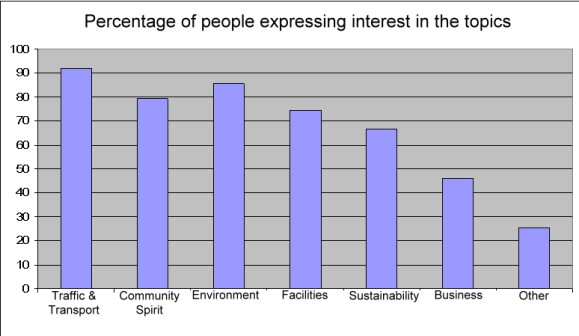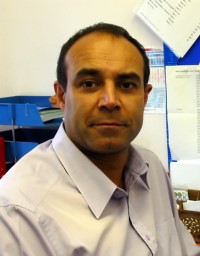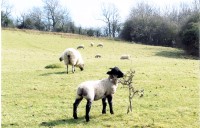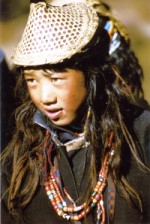|
The Pucklechurch community website |
|||||||||||||||
|
|
|||||||||||||||
|
|||||||||||||||
|
If you have signed up for emails and are not getting them please check the following: |
|||||||||||||||
 |
|
|
|
||||||||||||||||||||||||
|
In September the Community Plan steering group distributed a leaflet with Pucklechurch News and also put it in local shops, pubs and clubs. Although response was poor, there was a clear message about what areas are most important to the people in our community. The chart below shows the level of concern for each topic area. Your participation really matters! As mentioned, the response to the initial survey was quite disappointing. In fact only 63 surveys were returned out of over 1200 that were distributed. One thing is certain: our community specifically and life in general will change. If you want to influence how Pucklechurch and the surrounding area change, you have to get involved. Many communities in the country have better bus services, more local amenities and a greater say in their community because people got involved and produced a plan backed by the majority of residents. Your input is what is needed for this. What is happening now? Based on the input we received, a number of working groups have been formed to develop a detailed questionnaire on each topic. The response to this questionnaire will be the basis for the Community Plan for Pucklechurch, Shortwood, Parkfield and Lyde Green. The questionnaire will be distributed to the community in spring of next year. The working groups and group leaders are: What you can do Next spring there will be considerable work involved in distributing and collecting questionnaires. Several people have already volunteered for this, but we need a lot more. Call Alan or Martin (details below) if you are willing to help. On Tuesday, 13th February, at 7.30pm in the Village Hall, there will be a public meeting where each working group will present the priority areas for the plan. If you want to help make your community a better place, please try to attend this meeting. To volunteer or to get further details about the Community Plan, contact Alan Holder (937 2818) or Martin Smith (937 4437).
New Headteacher Gets Reacquainted with Village Hello! My name is David Forrester, and I am the new Headteacher at Pucklechurch Primary School. I have been in post for 12 weeks now, and I am loving every minute of the job. The children, I’ve been having loads of flashbacks, as I lived here for a couple of years when I first came to work in Bristol and so have always had a soft spot for the village. The Star Inn has changed a bit, but I still know my way around! As Headteacher I am very keen for the school to continue and develop even further its links with the community. If there is something you think we can do for you or vice versa, then please get in touch. We are particularly interested in maintaining links with the different sports and activity groups that run in the village and surrounding area, since this gives us a much broader knowledge of the children we teach. I’m sure I shall meet many of you at various events over the coming months and I look forward to getting back into the swing of life in Pucklechurch. David Forrester, Headteacher PucklechurchPrimary.School@southglos.gov.uk
The African Adventures of Athel Dunning Africa. In a shrinking world, it is still a very, very long way to any part of Africa that is not on the tourist path. We took five days to reach our destination of Nsongwe in Southern Zambia. Most of the journey had been in buses and trucks, so we were exhausted having spent days stood up on buses. The last part of the journey was with Edith, a devout Christian married to a local mechanic, who took 12 of us, plus 24 bags, in her five-seater pickup after we had been waiting for a bus for about eight hours. Twelve kilometres short of our destination, the clutch on her dilapidated pickup went. A forestry commission van from the local game reserve passed us and checked we were OK. They called the campsite we were staying at to arrange transport. When we asked why they were carrying weapons, the informed us that several lions had escaped from the local game reserve and were on the loose and it might be a good idea to remain in the vehicle. At this point, Edith told us that she was not scared of lions, as she would simply grab their paws and head butt them to death. Her real fear was “da wata buffalo. Him he can tear de car to pieces.” Hmmm! We got into camp at midnight after getting a lift off a local government politician named Mr Goodman, who really lived up to his name. In the village we were put to the task of building a teacher's home, under the direction of Village parents funded the school we worked in and they would only allow gifts to be given in the presence of the PTA, the headmistress and some local parents to ensure fairness. To enable all children to go to school, food in the form of porridge is provided to all, as some parents cannot afford more than one meal a day. Should a child be orphaned -- a common occurrence when AIDS has infected one-fifth of the population of the village -- the village as a whole allots a goat to be sold to pay for the education and medical care for that child, an example of the extremely strong sense of community in Nsongwe, which makes our ideals of the community look pale in comparison. Some of us taught basic English in the school, a task made difficult by the fact that many of the younger children were wary of us because of our “foreignness”. The teenagers among them, however, were curious about our lives in England and like most 12-15 year olds had an answer to everything. The gift that most pleased the local people was of was a full set of 11 Birmingham City football kits. Of course we had to use them and played the village team, losing one-nil in a match with a local referee who thought nothing of playing for the local team rather than just refereeing! It wasn’t all hard work. During the travelling to the village we spent several days in the Kalahari learning bush craft from the Sun People, speakers of the oldest and most beautiful language in the world. It uses every sound the human voice is capable of producing. One day while in the Kalahari we went on a walk and were shown what the local plants and their virtues were; for example, the desert cucumber, which looks and tastes like a melon. While on this walk we discovered tracks from an entire pride of lions that had passed the spot around 30 metres from our camp in the early hours of the previous night. While going to the toilet that night, I had heard something large in the bush nearby and thought nothing of it! I also had the privilege of sleeping in a bush-shelter built by Chamca, one of the guides, who knew so much about Kalahari plants that I swear he could have wandered out into the bush and made a six-course meal out of twigs and a berry or two. He was an expert at trapping and wild living in a way that made Ray Mears look like a complete townie! A few days later in a rhino reserve -- where the last rhinos in Botswana live -- we stayed the night. After travelling in the gruelling heat and sand of the Kalahari, it was a luxurious relief. Even if it was only a basic campsite and the showers hardly worked, it seemed like a paradise! While on a game drive there we were lucky enough to see some of the rhinos, but our truck got a puncture so we all got out and, as the driver was fixing it, the rhinos ventured closer and closer, coming within 20 metres of us -- several tons of rhino within 20 metres, and they are faster than humans! Not learning our lesson, on another game drive in the Chobe game reserve we had stopped to look at some elephants which were crossing the track behind us. The matriarch of the group suddenly and without warning charged, stopping a fraction of a metre away from the truck. At least I got a good photograph! It was difficult to leave the village when the time came -- a sad event made more bearable when the people did some traditional dances which had meanings for us. One was a farewell dance, and the villagers told us we were the first group that ever got up and danced with them (though we had no idea what we were doing). We felt immensely privileged to have done so. Indeed, the whole trip taught me that the dignity and humanity of people far less lucky than ourselves are things we could all learn from! Athel Dunning
The second annual Bob Stone Memorial Photography Competition attracted a stunning array of almost 100 photographs shown in an exhibition on September 24th. Cash prizes sponsored by Pucklechurch Revel and merchandise prizes donated by Ace Cameras in Yate and Rapid Snaps in Staple Hill were awarded in three categories: Open, 17 and under category
Village Life, 18 and over Our judges, who came from Thornbury Photography Club and had considerable experience judging photography competitions in the local area and beyond, had their work cut out for them. To view the winning images and the larger group of highly commended photographs click here. Jacki Berry
|



 staff and parents have been extremely positive and supportive. They are a great advert for the village and surrounding area. We intend that this shall always be the case.
staff and parents have been extremely positive and supportive. They are a great advert for the village and surrounding area. We intend that this shall always be the case.



